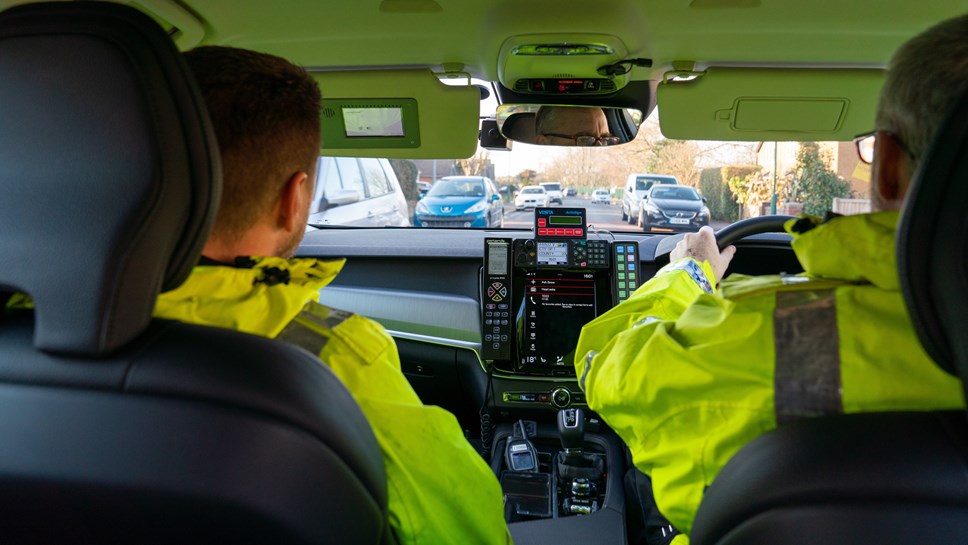
Project launched to help parents and carers return to policing
Police officers and police staff investigators who have left the force to start a family, or care for a relative or a friend, will be able to return to permanent jobs through a new project launched today by Minister for Women and Equalities Penny Mordaunt.
Those who want to take part can register their interest on a website launched today. Run by the College of Policing and funded by the Government Equalities Office (GEO), the pilot programme will start advertising full time investigative roles from April.
Minister for Women and Equalities Penny Mordaunt said:
“Our police officers keep this country safe and ensure justice is done. It is vital that they, and every woman and man in the UK, have as much freedom, choice and support as they need to return to work when they are ready.
“We are investing in this pilot to ensure they have the freedom and support to balance work and caring responsibilities effectively - so they can return to work when they are ready.
“In the UK, nine out of 10 potential returners to work are women. By taking action we are supporting our police service while also achieving true gender equality in our workplaces.”
Stuart Durrant, Return to Investigative Practice project manager for College of Policing, said:
“The Return to Investigative Practice project is focused on getting experienced people that have left the policing for care-giving reasons, back into the service.
“It is providing us with an excellent opportunity to create an evidence base of what works in attracting and retaining people so their policing skills aren’t lost permanently.
“With regulation changes making returning to policing easier, the project will also enable us to understand what support and development these investigators need coming back into forces.”
Chief Constable Matt Jukes, national policing lead for investigator resilience, said:
“The complex nature of investigations and our work to protect vulnerable people has made the roles of detectives and investigators more challenging than ever.
“Despite the progress forces are making, there remains a shortfall in detectives and the need for their skills around complex areas of crime is growing. We rely on our investigators to deliver high quality investigations and justice for victims at a time of changing demand. That is why policing has been developing a number of ways to increase our investigative resilience nationally and locally.
“There are former detectives outside the Police who we hope could be part of this. Returner projects like this are important to help bolster and support the outstanding work already being done by existing detectives and investigators up and down the country.”
The forces participating in the project are:
- Hampshire
- Surrey
- Sussex
- Kent
- Essex
- Thames Valley
- City of London
- Greater Manchester
Last year, police forces across England reported that they had 17% fewer investigators than they needed. But since 2014/15 only 188 full-time earners have rejoined the police in England and Wales after taking time off to act as a caregiver or to start a family. The aim will be to bring back police officers into investigative roles that suit them and enable forces to utilise their wide range of skills and experience.
The returners will be equipped with all the necessary skills, training and confidence to return to work in policing. Funded by £110,000 from the GEO, the project will explore the best ways to support returners to the police and will aim to establish an evidence base for police forces across the country to build on in the future.
The government has committed £5 million to help people with caring responsibilities back into work. With this funding, GEO have launched programmes in the public sector for social workers, allied health professionals, teachers and prospective civil servants. GEO have also launched a grant fund to set up returners projects in the private sector, with a further £500,000 of funding announced to support marginalised and vulnerable people to return to work.
Contact Information
Notes to editors
The pilot project will run between April 2019 and March 2020.
Case study – detective constable:
“I always knew that I wanted to come back to policing at some point, but I didn’t know how. I’ve worked in a number of roles since leaving and none compare to policing. The work I did as a detective really mattered and I felt it could help shape communities and bring justice to victims of serious crimes. The job of a detective is unique and I’ve not been able to find anything that compares. During my time as a police officer, I had chances to see the difference I’d made to people’s lives and still recall beautiful letters written to thank me for helping.
“In 2018 I heard about a project that was looking to support re-joiners coming back to investigative roles. I knew that this project was also looking to amend regulations to make re-entry more flexible for people like me. Acknowledging I will need some support to get back up to speed, I’d really like to explore the potential of returning to policing as a detective sergeant. I am committed and loyal to policing and hope that at some point in the future I’ll be able to use my skills and experience in an appropriate way.
“Without a project like this and the changes made to police regulations, I wouldn’t have a viable route back into policing. My length of absence from the service has previously barred me from rejoining in any way other than through initial recruit training. My circumstances are such that I cannot financially afford to begin at the starting pay point for a constable. I will need support and training undoubtedly, but I genuinely believe that my previous experience along with the skills I’ve gained during my time away mean I have a lot to offer policing. This project provides a pathway for someone like me to re-enter the service in a role and rank that is appropriate and that allows me to support vulnerable victims. Importantly it also enables me a way to return to my ‘family’ and support the brilliant work of colleagues who find themselves working in more challenging environment than ever.”
Case study – works in the police force:
“I was a police officer for over 12 years when I had my family. I still wanted to be a police officer but with young children it isn’t always possible to juggle three balls without something giving. You might juggle two – academia and raising young children – but not three. I felt like I was giving up the job I always wanted to do, and I might not have the option of ever returning. I was out of policing for some time, and when I was looking to re-join there was no option for me to return without starting at the beginning of the constable journey.
“It wasn’t possible for my force to give consideration to my prior service as a police officer. I had accumulated considerable skills and experience during my previous service. I worked on Response, Neighbourhood Policing, CID and within other specialist departments requiring specific non-standard training. This amounted to a considerable investment, in both time and finances, by my force in me. For this not to be recognised when I was considering re-joining was both disappointing and disheartening.
“Starting again would also not have helped me financially. I would have had to take a large pay cut, relative to what I was earning before I left the police. I now had the additional financial responsibility for my two young children, which was a massive consideration.
“I had been on a journey since leaving the police; maintaining skills in a professional capacity and obtaining post graduate and master’s degrees. I had worked in senior management and leadership positions in public sector and private industry. I didn’t want to start again as a constable so I looked for other options. The police had introduced the fast-track PC to Inspector and the Direct Entry Superintendent schemes. I applied and was offered a place on the Fast Track PC to Inspector scheme. This was a fantastic opportunity, however the force offering the position was a couple of hundred miles away from my home. In order to take up the position I would have had to live away from home during the week, which was impossible with two children.
“Had there been any opportunity for me to re-join doing the same or similar role to the one I left previously, on similar pay, I would have bitten my own hand off. It isn’t always about the money but when you have a family, and the financial obligations associated with that, it is a serious consideration. I can’t explain how much of a lifeline that would have been.
“Encouraging former police officers to re-join is about police forces needing and wanting good people and valuing them for the skills they have. Re-joiners come in with a memory, experience and skills that would ordinarily take years to obtain. They may require some assimilation; to learn about new legislation, policy and procedure. They will possibly need some operational guidance on the front line, until they regain their former confidence, but ultimately you get a fully trained officer back on duty in a very efficient and cost effective manner. I truly believe there are significant, long-term benefits to bringing really good people back into the police family.”
